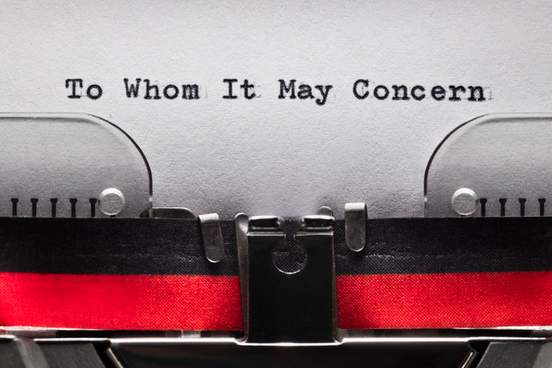
Accept/Except
These two words may confuse people because they’re homonyms (i.e. they sound alike) but they are in fact different words with different meanings.
Accept is a verb meaning “to receive (something offered) willingly” (“He happily accepted the gift”) or “to give admittance or approval to” (“She was accepted into five colleges”). Except is used to mean “with the exclusion or exception of” (“The mail comes daily except on holidays”) or less commonly to mean “exclude”:
As an adult, each [porcupine] is covered on its topside, excepting the muzzle area, with upwards of 30,000 quills…
—Bil Gilbert, SMITHSONIAN, May 1992
What to Remember: Except starts with the prefix ex- because it’s about leaving things out.
Dive deeper: 'Accept' vs 'Except': Two Verbs, One Pronunciation

Capital/Capitol
Capital describes uppercase letters or the seat of government (A capital city like Boston always starts with a capital letter). Capital also describes things that are very serious or punishable by death, like capital crimes. Sometimes capital is used to talk about a supply of something useful, such as startup capital or human capital. It’s also used to talk about a city that is important in some way (Paris is the fashion capital of the world).
On the other hand, capitol is only used to describe government buildings. When used to describe the building in Washington where the U.S. congress meets, it is capitalized:
Starting in the mid-1850s, painter Constantino Brumidi spent decades creating the paintings and frescoes that adorn the U.S. Capitol, including the spectacular images on the building's great dome.
—Library of Congress, January 27, 2023
What to Remember: If it’s a building it’s a capitol, otherwise you want capital.
Dive deeper: ‘Capital’ vs. ‘Capitol’

Farther/Further
Farther and further are often used interchangeably. Usage guides often say that farther should be used for physical distance and further for figurative distance, but actual usage does not follow this rule. Both words are used to talk about distance whether physical or figurative (“farther/further down the road,” “she read farther/further into the book than her classmates”).
When you want a word that means “to help forward” or “promote” you want further (“hoped to further his career”).
What to Remember: Because these words are often interchangeable, it’s usually safe to use either. But if you want to follow what the usage guides say, use farther for physical distance and further for figurative distance.
Dive deeper: Is it 'further' or 'farther'?

Loose/Lose
Loose and lose both have the same vowel sound in the middle, but the ‘s’ sounds different in each word, so it can be confusing to know which is which based on spelling. Loose means “not ridgidly fastened or securely attached,” “not tight fitting,” or “free from confinement” as in “loose screws,” “loose clothing,” and “loose change.” Lose means “to miss from one’s possession or from a customary or supposed place” as in “don’t lose your mittens.” The past and present tenses of lose are lost and losing which both also have one ‘o.’
What to Remember: Lose has the forms lost and losing which also only have one ‘o.’ So if you want the verb, you want the word with one 'o.'
Dive deeper: 'Lose' or 'Loose'?

Peak/Peek/Pique
Peak, peek, and pique all sound the same but are entirely different words. Peak is used to describe a high or pointed part of something, such as the peak of a mountain or the stiff peaks of meringue on a pie. Peak can also be used to talk about the maximum level, capacity, etc. of something, as in “the dancer peaked in her 30’s” or “we’ve reached peak capacity.” Peek is used to describe a furtive look, or looking furtively, as in “she took a quick peek in the kids’ rooms before bed” or “the cat was peeking around the corner.” Pique is most often used to mean “to excite or arouse especially by a provocation, challenge, or rebuff,” as in “the book’s title piqued my interest.”
What to Remember: Peak usually describes the highest part or level, peek describes looking, and pique describes provoking or stimulating strong feelings.
Dive deeper: 'Pique' vs. 'Peak' vs. 'Peek'

Their/There/They’re
Another group of homonyms, these words stump many people because they’re all pronounced the same way, but they have different meanings.
Their is a word that means “of or relating to them or themselves” or “his or her,” as in “their book is in the kitchen.” There means “in or at that place” as in “the book is over there.” They’re means “they are,” as in “They’re reading a book.”
What to remember: The word they’re has an apostrophe so remember that it is two words contracted together. The word there contains the word here so it is about location. If the word you need isn’t one of those, it’s their.
Dive deeper: How to Use ‘They're,’ ‘There,’ and ‘Their’

Who/Whom
Choosing between who and whom can sometimes be confusing, but for the most part, whom has fallen out of use and it’s perfectly fine to just use who. Whom remains in English in set phrases such as “To whom it may concern,” but in other uses it often sounds stuffy or unnatural.
Still, if you’d prefer to know when to use which, here’s the “rule”: whom is an object, so use it when it is the object of a verb or preposition. (In the sentence “I ate pie” pie is the object of the verb ate; in the sentence “Give the pie to me” me is the object of the preposition to). In all other places use who.
What to Remember: You can use whom when it is an object, but in most cases who works just as fine as well.
Dive deeper: ‘Who’ vs. ‘Whom’




